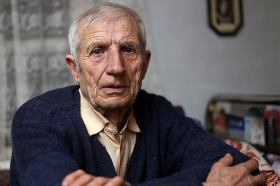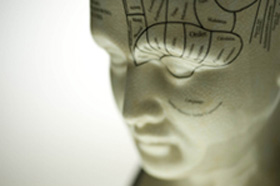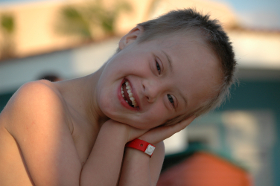
Headlines
Canada: UN recommends banning euthanasia for people whose death is not ‘reasonably foreseeable’
Temps de lecture : 2 min.
On 18 March 2025, the United Nations Committee on the Rights of Persons with Disabilities (CRPD) adopted its concluding observations. These observations are part of the review of the periodic reports submitted by Canada under the Convention on the ...
AI in healthcare: helping or hindering decision-making?
Temps de lecture : 1 min.
Support for diagnosis, reduction of medical errors, and less time spent on administrative tasks are just some of the promises offered by artificial intelligence technologies in the healthcare sector. However, according to a study published in...
+16,6% : why does the number of euthanasia cases continue to increase in Belgium?
Temps de lecture : 2 min.
Euthanasia is thus becoming an increasingly frequent way of dying in this country, accounting for 3.6% of deaths recorded in 2024. In the face of this ever-increasing societal trend, the Commission reiterates its need for adequate infrastructure...
Spinal muscular atrophy: promising treatment administered for the first time to foetuses during pregnancy
Temps de lecture : 1 min.
Spinal muscular atrophy (SMA) is a hereditary genetic disease characterised by the progressive destruction of the nerve cells that control the body's movements. Until now, treatments were implemented after birth to try to slow the progression of...
Between hope and organ shortage, uterus transplants raise ethical questions
Temps de lecture : 1 min.
For the first time in Belgium, a child has been born following a uterus transplant. To date, 65 children have been born in this way around the world. This small number is due to the difficulty of finding uterus donors. Ghent University Hospital,...
The Netherlands: opening of foetal biobank has led to surge in donations of foetal tissue after abortion
Temps de lecture : 2 min.
According to a study published in 2024 in the Journal of the American Medical Association, donations of foetal tissue after abortion have increased significantly in the Netherlands, from 1.2% (8 donations out of 663 abortions) to 21.7% (132...
Proposed extension of Belgian euthanasia law: critical feedback from the Netherlands
Temps de lecture : 3 min.
On Wednesday 22 January, two experts from the Netherlands presented the implications of such an extension, based on the Dutch experience. Their informed and critical experience provided food for thought about the social and ethical implications of...
How can palliative care be increased in a country that allows euthanasia?
Temps de lecture : 2 min.
In Belgium, palliative care is provided in a variety of settings (hospital, home, nursing home) in response to the demand of many patients to be able to choose where they receive this specific care. However, reports published by the Federal Centre...
Extending euthanasia to people ‘who have become incapable of expressing their wishes’: overview of hearings on a controversial bill
Temps de lecture : 3 min.
An Open Vld bill, co-signed by the PS, was tabled in the House last September. It aims to ‘extend the advance declaration of euthanasia to people who have become incapable of expressing their wishes’. Experts are currently being heard to consider t...
Live births after late-term abortion are no exception
Temps de lecture : 3 min.
In Quebec, induced abortions during the second trimester of pregnancy result in a live birth more than one in ten times (11.2%). Of these live-born fetuses, one in ten survives more than 3 hours. These are the findings of a study published in June...
Euthanasia in Ontario: over 400 breaches of the euthanasia law result in only reminders of the law
Temps de lecture : 3 min.
Between 2018 and 2023, more than 400 criminal offences involving euthanasia were recorded in Ontario. In 2024, doctors revealed this figure to the press, highlighting the facts contained in various reports from the authorities responsible for...
Organ donation after euthanasia: Altruism to mask utilitarianism?
Temps de lecture : 3 min.
The 10th ‘Sympadot’ symposium, organised on 21 November by the Transplantation Department of Brussels University Hospital (Erasme), focused on organ donation and transplantation. Among the topics discussed was the deliberately...
Our thematics

Presentation of the EIB
Due to increasing social issues arising from technological advancement, each year we are faced with new ethical questions.
In response, the European Institute of Bioethics has decided to provide well documented information in order to raise awareness in these ethical areas.
The following are some of our current challenges, our means of action and what we need in order to succeed.





